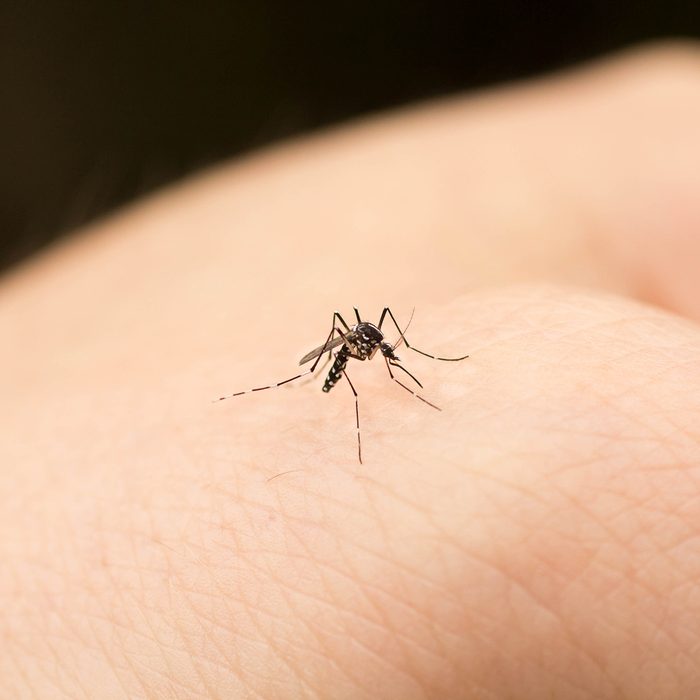
What to Know About Mosquito Bites
It’s summer—and we all know that feeling of endless-itch that comes with pesky mosquito bites. Mosquitoes are out for blood! Fortunately, you can sooth your skin and repel further bites by using ingredients that you probably have in your kitchen.

Banana Peels
Along with this fruit’s high potassium content and use as a banana bread ingredient, a banana’s peel is proven to soothe the itching and swelling of mosquito bites. The interior of a banana peel boasts antibacterial properties and is rich in vitamin C—an antihistamine that is great for treating bug bites. Peel a banana and let the interior of the peel sit over the bite for a few minutes.
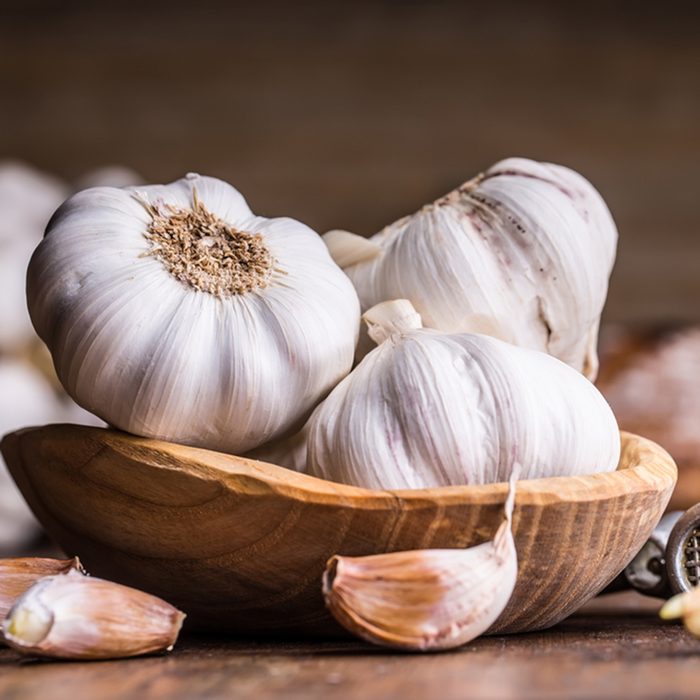
Garlic
When it’s not being sauteed in a frying pan or keeping vampires at bay, garlic is a natural mosquito repellent. The pungent aroma of garlic will scatter insects, so about a week before your next camping trip, add extra garlic to your diet. Your body will sweat out the odor, and although you might smell of garlic, bugs won’t bother you.
If you aren’t particularly fond of the strong taste and avoid our recipes for garlic lovers, you can also make a mosquito repellent spray. Mince some fresh garlic cloves and let them soak in mineral oil for at least 24 hours. Then remove the garlic bits, dilute with water and strain before adding to a spray bottle.
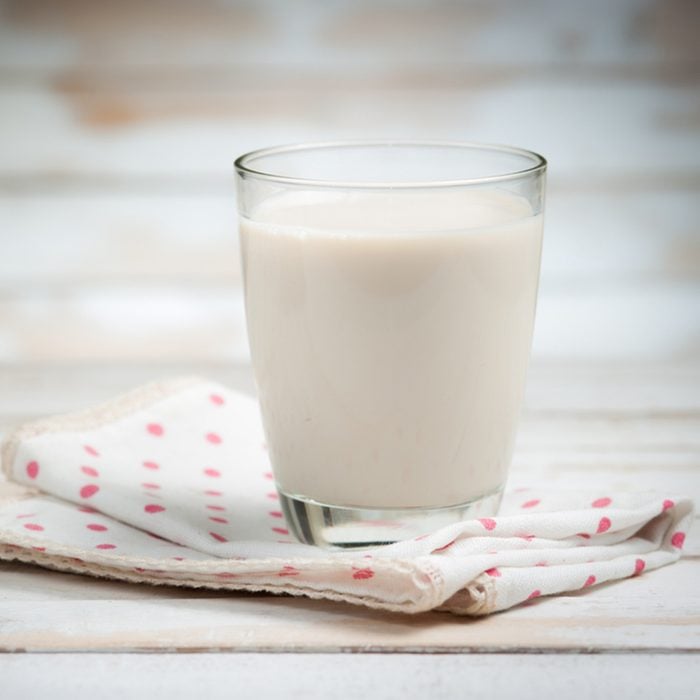
Milk
Not only does milk build strong bones, but its high vitamin and antioxidant content promotes healthy, healed skin. Vitamin A found in milk soothes dry, irritated skin, while antioxidants nourish and help provide sunburn relief and inflammation. Mix one part powdered milk with two parts water to form a milk paste that you can apply to bothersome bug bites, alleviating itchy discomfort.

Salt
This kitchen staple can be used to soothe even the peskiest of mosquito bites. Salt has both antiseptic and anti-inflammatory properties, so applying a salt and water paste will help calm irritated skin. Mix a couple generous dashes of salt with a few drops of water to form a paste, and then apply to the affected area. Find more unexpected uses for table salt around the house.

Olive Oil
If you have a bird bath in your yard and want to rid the area of the mosquito swarm that comes with summer, grab the bottle of olive oil in your pantry. Add a few drops of oil to the water to keep mosquitoes from using it without bothering the birds that stop by. As with other yard maintenance, keep an eye on things; try to change the water twice a week in case any larvae are hatching in the area.
To make a natural repellent with olive oil, mix it with some clear liquid vanilla—the smell repels mosquitoes, black flies and ticks. From healthy hair to supple skin, here are some incredible olive oil benefits.

Onions
Using onions as a mosquito repellent is similar to using garlic—it reeks! It’s always good to have minced or sliced onion on hand if you can stand the smell.
If you’ve already been bitten, use onion juice on the area as a remedy. It has antifungal properties, so it will reduce the risk of infection and relieve itching. Let a piece of onion sit on the bite for a few minutes, and then gently wash the area with cool water. There are several types of onions you can use, and it doesn’t matter which one you choose.
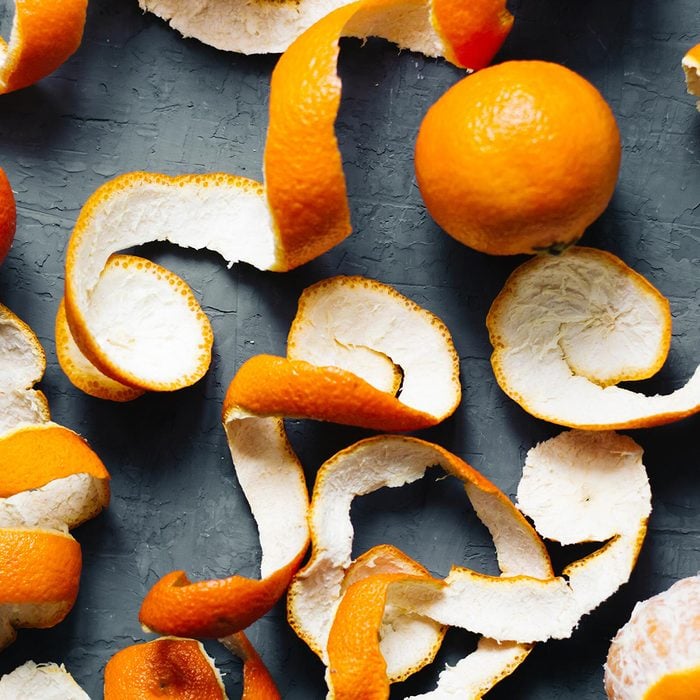
Orange and Lemon Peels
You might not love the idea of rubbing onions all over your skin or eating copious amounts of garlic. If you have some lemons and oranges in your kitchen fruit bowl, they’ll do the trick too. The common thread here is that bugs are naturally repelled by strong smells, so you can choose if you want to smell like an onion or a citrus fruit.
Using orange and lemon peels to repel bugs is easy—peel your fruit, snack and then gently rub the peel over areas of exposed skin. You can also use citrus to make a natural wasp repellent.
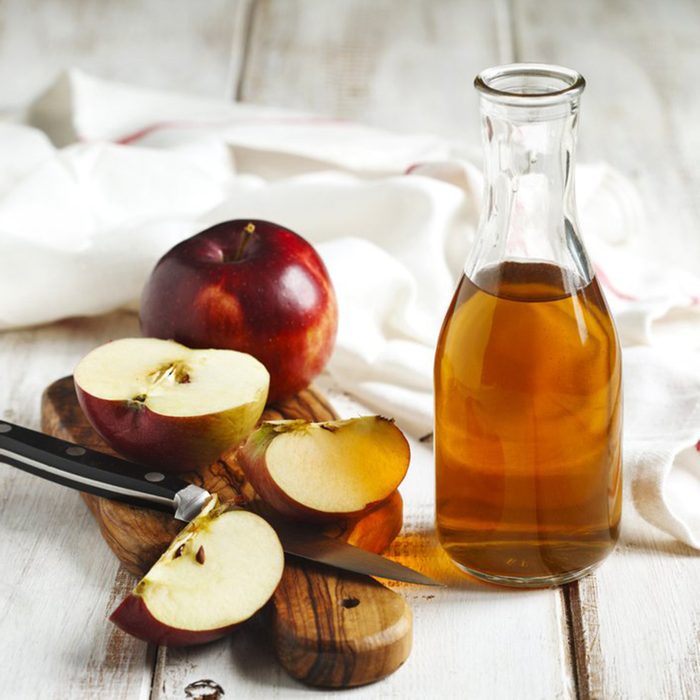
Apple Cider Vinegar
What can’t we use apple cider vinegar for? You can use ACV to refresh drains or make a homemade fruit fly trap—and it’s an effective mosquito repellent, too. If you already include apple cider vinegar in your diet, taking it three times a day a few days before your next hike or camping trick will be no big deal. And if you don’t like the taste, grab a bottle and dilute it with some water and aloe vera. Moisten a cloth or towel, and gently rub it into your skin.
Don’t miss all of these ways to use apple cider vinegar around the house.
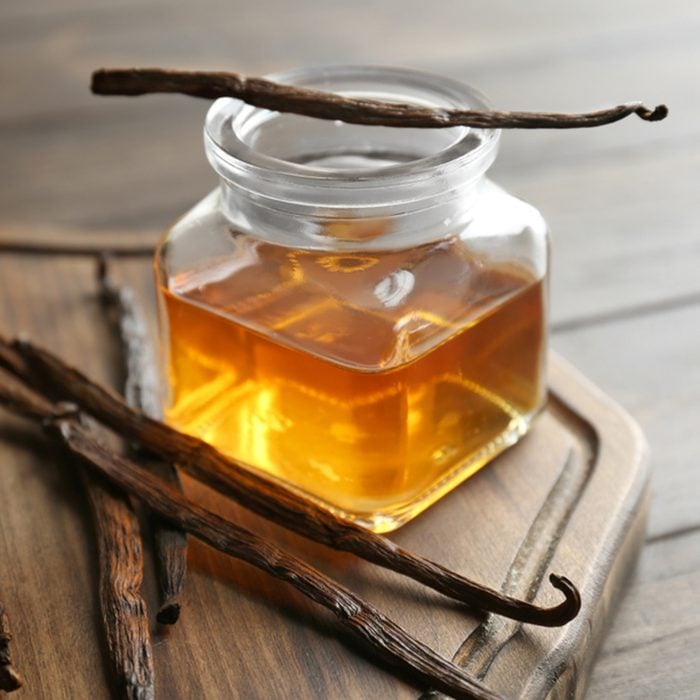
Vanilla
There’s nothing as soothing as the smell of vanilla—but bugs definitely don’t agree. You can put your favorite baking ingredient to use as a mosquito, tick and black fly repellent by diluting 1 tablespoon vanilla extract with 1 cup water and wiping the mixture on your exposed skin. Here’s how to tell the difference between real and imitation vanilla.
